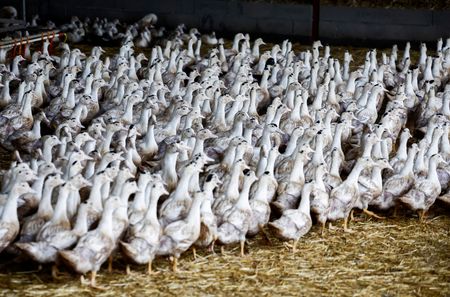By Cecile Mantovani and Gabrielle Tétrault-Farber
VEVEY, Switzerland (Reuters) – Stefanie Brander, one of the more than 2,000 women over 64 who won a court case against Switzerland over climate inaction, was on the frontlines of a protracted legal battle in which she said authorities showed little regard for the elderly plaintiffs.
Europe’s top human rights court in Strasbourg ruled on Tuesday that the Swiss government had violated the rights of its citizens by failing to do enough to combat global warming.
The Swiss women who initiated the case, known in German as KlimaSeniorinnen (the Climate Senior Women), said their government’s inaction put them at risk of dying during heatwaves.
They argued their age and gender made them particularly vulnerable, and demanded that Switzerland design its climate policy in a way that would limit global warming to 1.5 C.
“We weren’t taken seriously by the authorities, that’s what the verdict of the court shows,” Brander, 69, told Reuters at her home in Vevey, a town on the shore of Lake Leman, after returning from Strasbourg to hear the verdict.
“I think that was a big mistake.”
The Swiss Federal Office of Justice, which represented the government before the court, said it would analyse the ruling to determine the measures needed.
Brander, who spent her career fighting for gender equality in Swiss universities, pointed to lingering attitudes about older women in a country where women were granted the right to vote in 1971, much later than most other European countries.
“Old women are made to look after grandchildren, to knit. This is still a very deeply rooted cliché in Swiss mentalities,” she said.
‘SOMETHING WE CAN DO’
Switzerland is warming at more than twice the global rate and its glaciers are melting rapidly. Bern outlined a plan to make deeper emissions cuts, but voters rebuffed it in 2021 because it was viewed as too burdensome.
Brander and her husband Urs had always been conscious of their own role: they never owned a car and limited consumption.
But when a major heatwave engulfed Europe in 2003, killing thousands of people and causing forest fires, Brander realised just how critical the situation was.
She thought authorities would take measures, that new technologies would emerge to reverse the situation.
“We still had hope,” she said on her balcony with snow-capped mountains in the background. “Well, no, nothing happened, absolutely nothing.”
Brander had heard of KlimaSeniorinnen since the group’s inception in 2016 and did not hesitate to join.
“After I saw how young climate activists have been treated in court, and that the big polluters get out of this with no consequences, it made me so angry that I said to myself, there is something we can do and it’s to join this movement,” she said.
She said the group was made of up of feminist women with different backgrounds – and they would not rest on their laurels.
“We can say for 2050 we want to be a carbon-free country. Ok, but how? Who’s controlling and correcting this? These are questions that need to be put on the table now and that’s what we want,” she said. “We will keep an eye on this, we will stay mobilised, we will ensure that measures are taken.”
(Reporting by Cécile Mantovani and Gabrielle Tétrault-Farber; Editing by Andrew Cawthorne)












